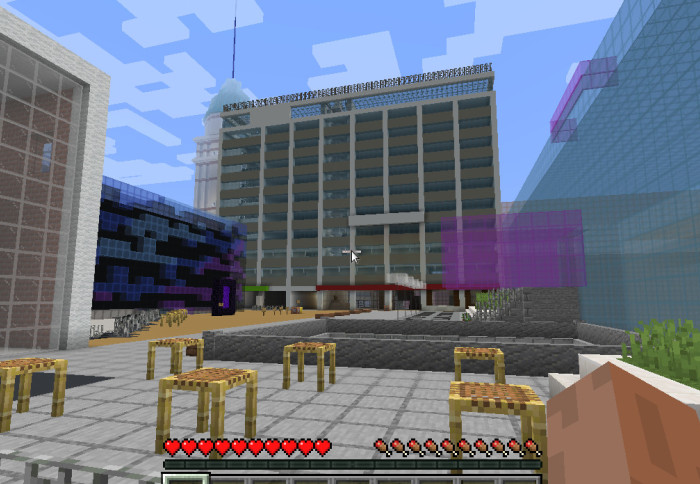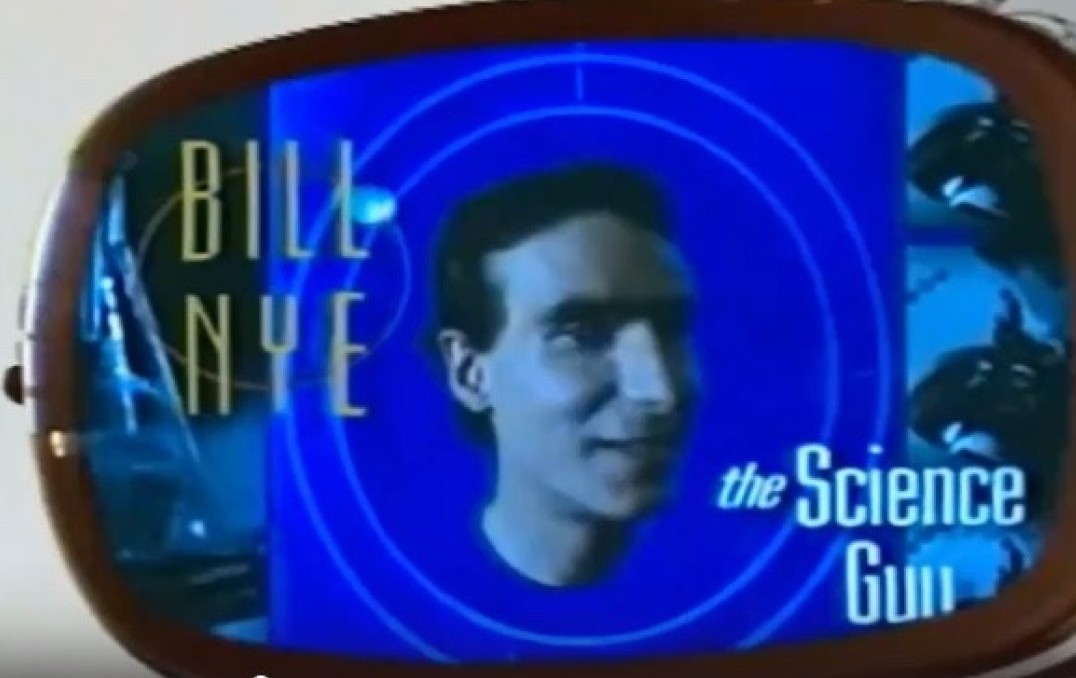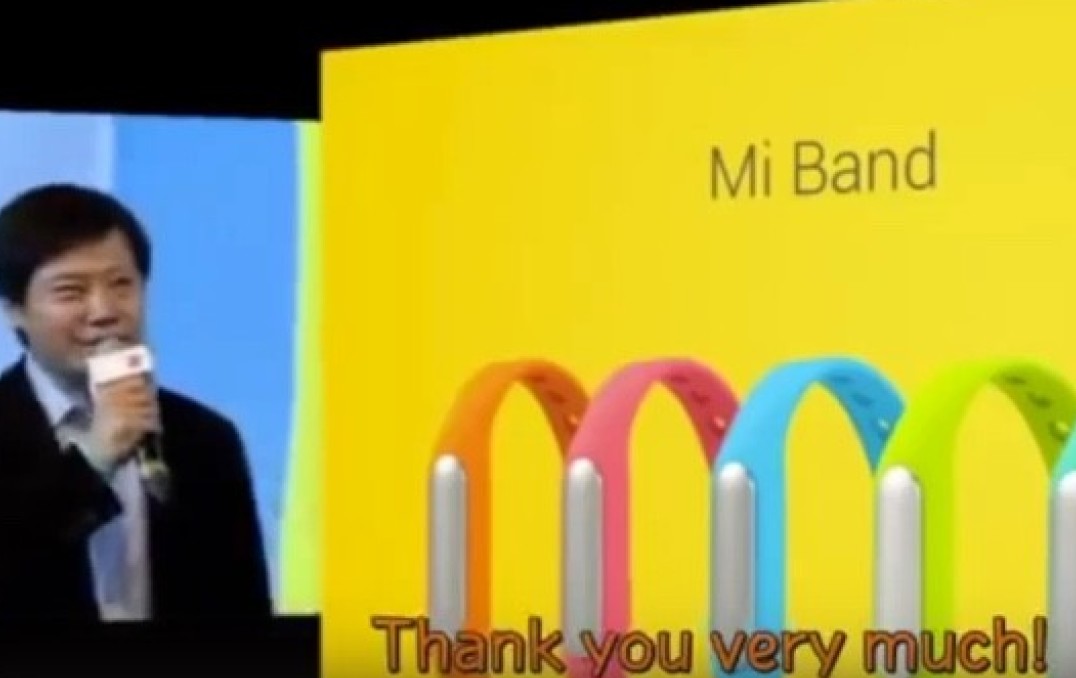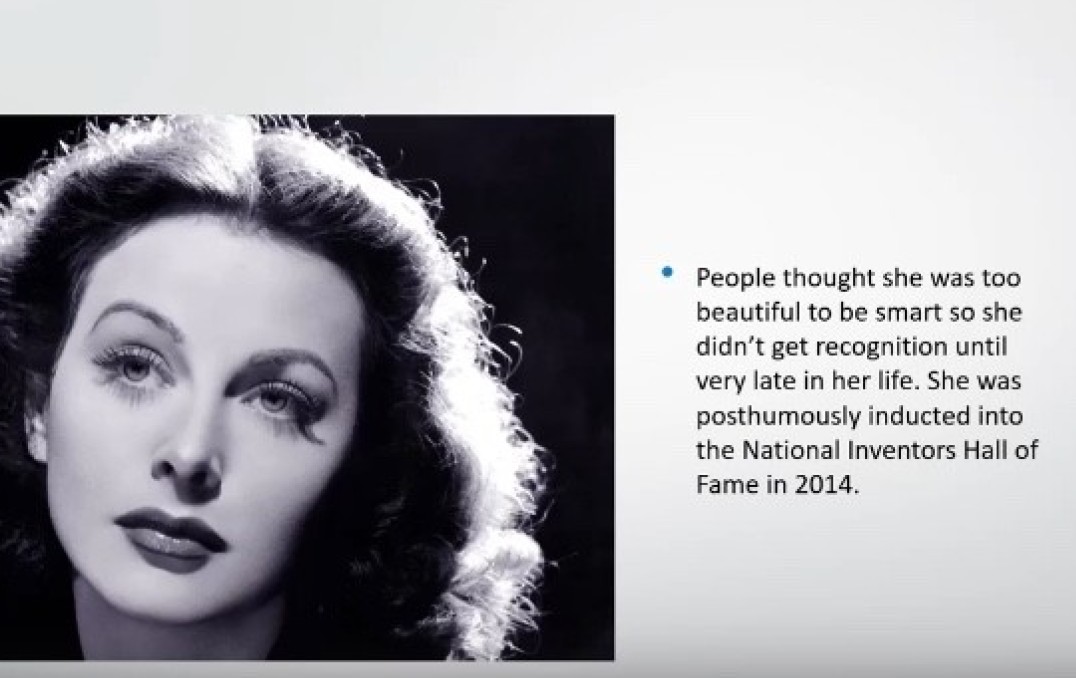New kids on the block — delivering a welcome week with a difference
by Jane Horrell

Staff and students have welcomed EEE undergraduates with Minecraft, papercraft, and some engineering superheroes.
The start of autumn term is always busy and challenging, with a week of introductory presentations and informal activities to help our new students get to know their classmates, familiarise themselves with the campus and settle into life as a member of the EEE community.
This year, with the department’s welcome week moved online, and over 200 students joining us from across the world, it took some superhuman efforts by first year co-ordinator Dr Adrià Junyent-Ferré, and a team of staff and students, to engineer a virtual twist on our usual programme.
Engineering heroes
Student teams were given just a couple of hours to create a video in which to introduce themselves to the cohort, and present their team's choice of an inspirational engineer.
Featured engineers included fictional characters from children’s television like Bob the Builder, and comic book superheroes such as Iron Man, as well as diverse real-life engineers from ancient history to the present day.
The winning videos showcased Tommy Flowers — designer of the world's first programmable electronic computer during WW2, and Li Bing — legendary Chinese politician and hydraulic engineer whose 2000 year old irrigation system is still in use today.
Student power
The Electrical and Electronic Engineering student society EESoc played a large part in welcome week. As many students are unable to meet in person for a while, EESoc will have an extra important role this year helping build a sense of community.
Every year EESoc organises a mentoring scheme they call 'Mums and Dads' — placing new students into "families" with student “parents" from other year groups.
EESoc's Priya Chhaya: "In EESoc tradition, we started the year off with an introduction to the EE Families. Freshers got to meet their parents virtually in their family teams channels, completing a lot of fun challenges, from socks to funny pictures, and testing their knowledge of London along the way."

The usual EESoc campus scavenger hunt moved online this year, thanks to the power of Minecraft and some particularly impressive building skills. "Third and fourth years in our department managed to create Virtual Imperial, a large Imperial campus, with all the details — including the right trees — for our students to explore."
The Women in Electrical Engineering Society (WiEE) also organised an online meeting and quiz as part of welcome week to introduce the committee and meet their "younger sisters."
A message from EESoc
"Our main mission at EESoc is to bring the EEE and EIE community a bit closer, so we hope everyone enjoyed the week one activities. It’s been great to meet and interact with the new students, no matter what timezone they’re in. "Mums and Dads" went better than we could’ve hoped (without any technical glitches) and we hope that children will be able to keep in touch with their parents throughout the year, and meet in person once all this is over! Look out for our emails and social media - we have a lot of fun virtual events planned!
Engineering lessons
One of the regular highlights of our usual welcome week activities is the Flying Thing competition. Our new student teams were challenged to design and build a papercraft device that could be the most effective in slowing down a paper clip dropped from height.
As we couldn't demonstrate the inventions with a live audience in the main lecture theatre this year, teams were asked to submit their work as design files. The devices were constructed following the teams’ instructions and put through the same rigorous testing.

Our undergraduate engineers created some beautiful and ingenious solutions, and the competition was only slightly diminished by some very effective — if controversial — "designs." Dr Junyent-Ferré says one engineering lesson we can learn from this is that sometimes the very simplest ideas are the most successful!
Rapid results
Students also got to experience a more serious engineering challenge with a presentation which featured in this summer's Lockdown Lessons series.
In this session biomedical electronic engineers Dr Pantelis Georgiou and Dr Nick Moser discussed how they have adapted their lab-on-chip technology which provides a low cost, rapid test for infectious diseases, to create a handheld molecular test that can identify the presence of COVID-19 from patient samples within 20 minutes.
Some words of advice for our new students
Dr Junyent-Ferré: Focus and feedback
"This is a tough course that requires focused study time every day. When I was a student, I found it very hard to study from home with so many distractions, which makes me think that this is going to be more challenging this year. The key to success is to find the right balance between focused, undistracted, study and leisure time that works for you. It took me a while to get it right but the period that followed afterwards was great because I was healthier, happier, and more successful.
The mid-term tests will be an important milestone and will give you feedback about how well you are doing. If the tests don't go well, you will still have time to catch up, but ask for help through the module lecturers or the personal tutors if you feel overwhelmed."
Priya Chhaya (EESoc): Persevere and remember to play
"Number one — enjoy the learning curve this year. It can seem tricky at times, but you are also introduced to some of the fundamentals that underpin some of the newest and coolest things, so engage with the course as much as you can!
And number two — don’t forget to take time for yourself, whether it’s to go see a museum in London (or virtually), play games with friends, or even just watch a movie one evening. As the weeks go on, remember to not get entangled in work too much, breathe and have a bit of fun!"
Dr Georgiou: Think like an engineer
“These are challenging times, however with challenge comes innovation and as electrical engineers, we are uniquely placed to create new technologies to deal with this pandemic. This course will teach you a way of thinking, analysing and solving problems and I’m looking forward to seeing you become inventive to deal with the challenges the world is facing.”

We hope that our new students are settling in after this unusual start to your Imperial journey. Don't forget to stay safe, stay in touch and reach out!
Article text (excluding photos or graphics) © Imperial College London.
Photos and graphics subject to third party copyright used with permission or © Imperial College London.
Reporter
Jane Horrell
Department of Electrical and Electronic Engineering


